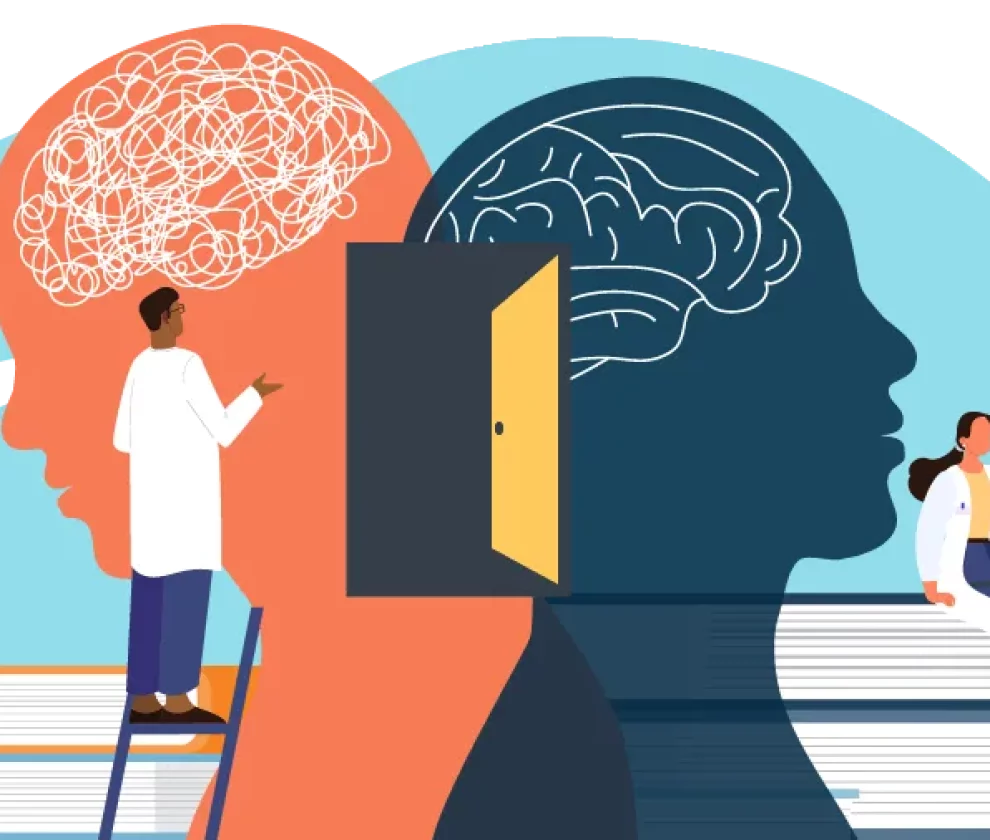Grief can change how you think, feel, and function. For some, the pain of loss fades with time. For others, it lingers, making it hard to return to daily life. Exploring rehab for grief is one way people find structure, support, and understanding during this difficult time.
Whether you’re dealing with short-term sadness or signs of prolonged grief, there are ways to navigate the healing process with care.
Why Rehab for Grief Is Essential for Healing
Grief isn’t just about sadness—it can affect your mind, body, and relationships. While many people move through the grieving process naturally, others experience more intense emotional pain that doesn’t ease with time. This is where structured support, often referred to as rehab for grief, becomes important.
Grief can overlap with other mental health disorders like depression, Anxiety Disorders, Bipolar Disorder, or even Substance Use Disorder. These co-occurring issues can complicate the healing journey.
Mental health experts sometimes use terms like persistent complex bereavement disorder or complicated grief when someone’s symptoms remain severe and long-lasting.
Rehab for grief typically includes evidence-based therapies, such as Cognitive Behavioral Therapy and family therapy. These approaches focus on improving self-esteem, managing emotional distress, and building healthy coping strategies.
Learning how to handle overwhelming emotions—especially after a traumatic loss—can be a key step in understanding your mental health and moving toward long-term recovery.
Understanding Grief and Its Impact
Grief affects people differently. Some experience physical symptoms like fatigue, aches, or trouble sleeping. Others face emotional symptoms, including intense feelings, mood swings, or social withdrawal.
These responses are common in the early stages of grief, especially after the death of a loved one or another significant loss. Grief can be especially hard during the holidays, because of the emphasis of family during the holidays.
But when grief becomes more than a temporary phase, it may signal a deeper concern. Mental health professionals recognize conditions like bereavement disorder and Traumatic Stress Disorder, where the effects of grief begin to disrupt normal activities or relationships.
Rehab for grief aims to address these complications by helping people understand their emotional pain in the context of life experiences.
There’s also a difference between normal grief and disorders such as complicated grief or Post Traumatic Stress Disorder. These conditions may emerge after a traumatic event or during ongoing mental health issues like Borderline Personality Disorder or Eating Disorders.
Through education, self-awareness, and support groups, individuals begin to make sense of their symptoms and find a path forward that honors both the loss and the process of recovery.
Core Components of Grief Treatment Programs
Grief treatment programs can vary, but most include a mix of therapies, education, and peer support. The goal is to help individuals manage grief symptoms and rebuild a sense of safety, connection, and purpose.
Programs may take place in a Residential Treatment Center, an Intensive Outpatient Program, or through outpatient therapy, depending on each person’s unique needs.
Many programs use evidence-based treatment models like Cognitive Behavioral Therapy and Complicated Grief Therapy. These methods focus on how thoughts and behaviors affect the grieving process.
Group therapy and individual therapy are often included, giving people space to talk through difficult feelings in a safe environment. Art Therapy and exposure therapy may also be used to help express emotions tied to a traumatic event or significant loss.
Some people also benefit from grief counseling focused on long-term emotional wellness and building a stronger support system. Rehab for grief isn’t about rushing the process—it’s about creating the right conditions for healing to unfold naturally.
Addressing Co-Occurring Mental Health Issues
Grief doesn’t always exist alone. It can overlap with other mental health disorders that affect day-to-day life, like depression, Bipolar Disorder, or PTSD. This is known as dual diagnosis, and it’s common in grief cases where the loss was traumatic or deeply personal.
People navigating grief and loss may also struggle with Substance Use Disorder, Eating Disorders, or a mood disorder. These co-occurring conditions can complicate the healing process and make it harder to engage in normal activities or maintain healthy relationships.
Recognizing the link between grief and mental health conditions is an important step toward recovery.
Treatment options that focus on both grief and co-occurring issues offer the best chance for lasting change.
These programs often include psychiatric support, family therapy, and help from clinical staff trained in trauma-informed care. In the context of rehab for grief, addressing mental illness alongside grief symptoms ensures that the root causes are not overlooked.
Recognizing the Symptoms of Grief
Grief doesn’t always look the same. Some people cry often, while others shut down or become easily irritated. Physical symptoms can include fatigue, headaches, chest pain, or changes in appetite. Emotional distress may show up as hopelessness, guilt, or anger.
There are also deeper symptoms that signal the need for professional treatment. Suicidal ideation, prolonged emotional pain, or withdrawing from normal life for extended periods are signs of persistent complex bereavement disorder.
Understanding the stages of grief—denial, anger, bargaining, depression, and acceptance—can help people track where they are in the process, though not everyone moves through them the same way.
In rehab for grief, these symptoms are explored in a supportive environment. Therapy sessions, support groups, and one-on-one time with a mental health professional allow people to process their grief safely.
Identifying grief symptoms early can prevent more serious mental health issues down the road and support the long-term healing journey.
Choosing the Right Grief Treatment Center
Selecting a grief treatment center is a personal decision, and it’s important to find one that understands the emotional pain tied to loss.
A good center should offer a safe space, a supportive environment, and a variety of treatment options to meet different needs. Programs may be short-term or long-term, depending on the severity of grief symptoms and any co-occurring mental health conditions.
Look for centers that treat more than just grief. People facing the effects of grief often deal with mental health disorders like Post Traumatic Stress Disorder, Anxiety Disorders, or even Drug Abuse and Alcohol Addiction.
A strong rehab for grief program will address these through evidence-based therapies like Cognitive Behavioral Therapy, Holistic Approach methods, and family involvement.
The admissions process should also be simple and respectful of your personal information and privacy. Whether someone is dealing with a traumatic loss, intense feelings, or Symptoms of Complicated Grief, the right support system can make all the difference in moving forward.
Healing Strategies for Long-Term Recovery
Long-term recovery doesn’t mean forgetting the loved one who passed. It means learning how to live with the loss while still finding joy and purpose. Rehab for grief often includes tools and coping mechanisms that support emotional healing and personal growth over time.
Many people benefit from re-engaging in social activities, creating new routines, and returning to normal activities. These steps help rebuild daily life and support self-esteem.
Some also find strength by exploring a higher power or spiritual beliefs during the grief process, especially when facing unresolved grief or traumatic stress disorder.
Therapists may encourage healthy coping strategies that fit your lifestyle, including mindfulness, journaling, or joining support groups. Group therapy sessions focused on shared life experiences can also provide relief and understanding.
These healing strategies help manage negative feelings while building the foundation for long-term emotional health.
A Path to Hope and Recovery
Grief affects more than emotions—it changes how people live, think, and connect. Rehab for grief gives individuals space to work through the pain of loss with mental health professionals who understand what it means to hurt and heal.
With time, support, and the right tools, people can move through difficult times and begin a new chapter. Grief doesn’t disappear, but it can become part of a larger healing journey—one that leads to renewed strength, purpose, and peace. Contact us today for more support.




